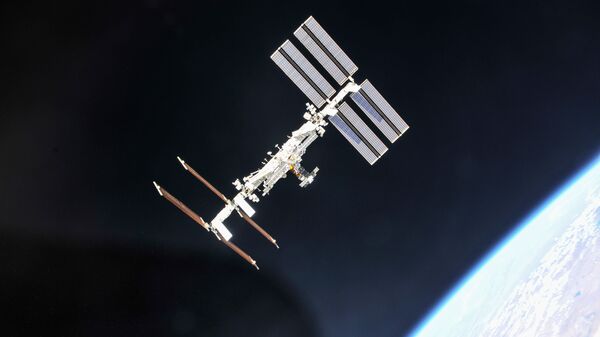A Soyuz MS-18 spacecraft is expected to carry the first-ever all-Russian mission to the ISS in April 2021 to bring Russian cosmonauts Oleg Novitsky, Petr Dubrov, and Sergei Korsakov to the ISS.
Earlier in the day, the Russian space agency Roscosmos told Sputnik that the Progress MS-14 engines attached to the Russian Zvezda module of the ISS would start at 22:50 Moscow time (19:50 GMT). The manoeuvre is expected to increase the space station's orbital altitude by 1.2 kilometres (0.7 miles) up to 419.4 kilometres above the Earth's surface.
"The impulse was successfully issued," a specialist of the Moscow-based Mission Control Centre told Russian cosmonaut Sergey Ryzhikov.
Earlier this week, US astronaut Kathleen Rubins installed wireless sensors on the "leaking" intermediate compartment of the Zvezda module to measure the loads that it experiences during an ISS orbit correction. In addition, Ryzhikov is expected to take a photograph of the crack after the altitude correction to understand the impact.
Last month, Roscosmos said in a statement that the ISS orbit correction was scheduled for November 12 in order to form ballistic conditions before the Soyuz MS-18 launch.
A ISS orbit correction is scheduled for November 12 at 19:35 UTC to initially form ballistic conditions prior to the #SoyuzMS18 crewed spacecraft launch and docking, which are scheduled for the spring of 2021 — https://t.co/eJxXlfafnI pic.twitter.com/Y91xLkqJTP
— РОСКОСМОС (@roscosmos) October 30, 2020

